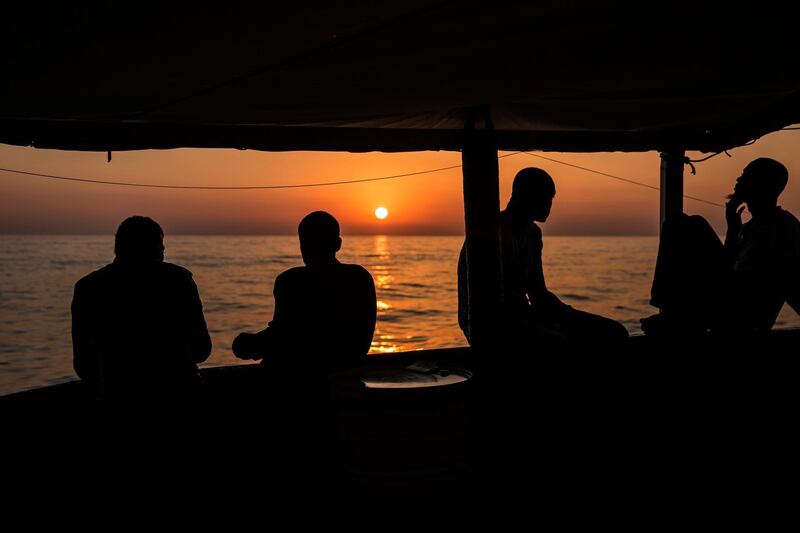More than 200 migrants have drowned at sea in the Mediterranean since the start of July as migrants and people traffickers rush to beat an anticipated crackdown by the Libyan coastguard and Italian authorities.
The total number of migrants to die attempting the precarious crossing this year has now surpassed 1,000, according to the United Nations.
Othman Belbeisi, the Libya Chief of Mission at the International Organisation for Migration (IOM), reported an “alarming increase” in deaths at sea.
“Smugglers are exploiting the desperation of migrants to leave before there are further crackdowns on Mediterranean crossings by Europe,” he said.
In all, IOM says 1,405 people have died in the dangerous Mediterranean Sea crossing this year.
EU states have agreed to do more to stop irregular migration across the sea to reach the bloc and look into “disembarkation platforms” to deal with those rescued from the dangerous journey, particularly in Italy, Greece and Malta. Thousands of migrants have died attempting to reach the EU in recent years.
The agreement comes as EU countries on the Mediterranean frontier have started to refuse entry to rescue ships who are helping save migrants at risk of drowning. Spain and France have stepped in to take the migrants who have been refused entry.
On Wednesday, a rescue ship carrying 60 migrants arrived at a port in Barcelona after being refused entry by both Italy and Malta. It is the second time in recent weeks that an aid group has been forced to transport rescued migrants further afield because of an unwillingness to accept them.
The Italian government is blocking private rescue boats that it blames for encouraging human traffickers to launch unseaworthy boats loaded with migrants toward Europe.
But the aid groups deny having any link to smugglers in Libya or elsewhere, and say they are being forced to leave unattended the busy migrant sea transit route where deaths are mounting.
In another move, Malta stopped a small aircraft used to search for migrant boats from operating out of the country.
The move appeared to be part of efforts by both Malta and neighbouring Italy to make it near impossible for non-governmental organisations (NGOs) to use them as bases to help rescue migrants adrift off the nearby Libyan coast.
"From now on no search flights in the search area north of the Libyan coast are possible anymore," German NGO Sea Watch said.
_______________
Read more:
Merkel hails compromise on migration with Bavarian allies
Libya says 63 missing in new Mediterranean shipwreck
Migrant deaths crossing Mediterranean surpass 1,000 in 2018
_______________
The migration issue is once again exposing deep divisions within the European Union. German Chancellor Angela Merkel has performed a u-turn on her liberal migration policy in a bid to save her fragile government. She agreed to tighten border controls and establish closed “transit centres” to hold migrants on the Austrian border.
The move immediately sparked criticism from several EU countries, including Austria, Italy and Hungary.
But Budapest’s anti-immigration Prime Minister Viktor Orban on Tuesday signalled his willingness to strike a bilateral deal with Merkel that would limit the arrival of asylum seekers in Germany.
In an interview with German mass daily Bild, Mr Orban said Hungary was open for talks with Germany if Berlin managed to strike a migration deal with neighbouring Austria, whose Chancellor Sebastian Kurz is, like Mr Orban, an immigration hardliner.
"The order can only be: negotiations between Germany and Austria, then negotiations between Austria and Hungary," Mr Orban said according to a Bild prerelease published on Tuesday.
"And only at the end, if there really is clarity about the German position, (there can be) negotiations between Hungary and Germany," Mr Orban added.
According to the IOM, more than 500 people have died trying to cross from Libya since the Aquarius, another charity rescue ship, was blocked from ports in Italy and Malta in early June.
Doctors Without Borders blamed the deaths on the European Union's inaction.
"The EU is abdicating their responsibilities to save lives, blocking search and rescue and condemning people to be trapped in Libya," the group said in a tweet Wednesday. "Any deaths caused by this are now at their hands."






